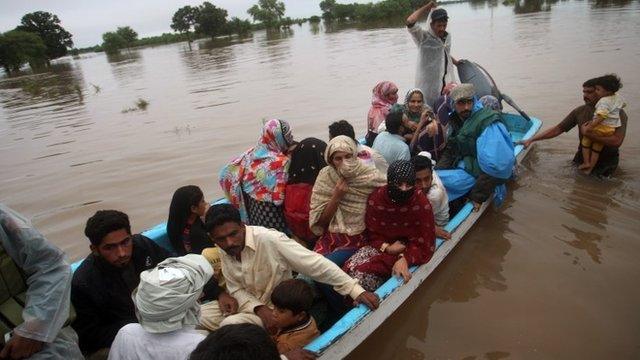Anger grows amid flood disaster in Kashmir and Pakistan
- Published
Crowds of people displaced by the floods are protesting at the lack of help from authorities, as Andrew North reports
There is mounting anger in Indian-administered Kashmir amid accusations that the government has acted too slowly in the flood crisis.
Many homes and even hospitals in the capital Srinagar are submerged but patchy communication means people do not know if their loved ones are safe.
Across the border in Pakistan the authorities are preparing to battle rising rivers threatening Multan city.
The death toll in the two countries has passed 450 and is growing by the day.
'Stone-pelting'
In Indian-administered Kashmir there have been isolated attacks by furious flood victims on rescue teams who have asked for armed escorts.
Sanjoy Majumder reports from Srinagar - Kashmir's "city of islands"
There have been reports of residents pelting soldiers with stones, but army officials told local media that they understood that people were desperate and rescue work would continue unabated.
People in the area have complained to local media of a delayed response, accusing the government of not appreciating the severity of the disaster early enough, failing to provide regular briefings and insufficient rescue boats.
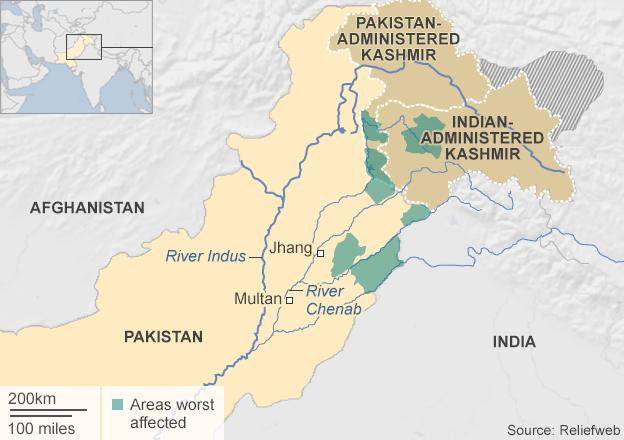
The BBC's Simon Atkinson in Srinagar reports that the road to the city's airport remains under water and on streets which are passable, convoys of lorries packed with groups of men gathering water, food and firewood have become a common sight.
He adds that the water levels of Dal lake, Srinagar's tourist centre famous for its British colonial-era houseboats, continues to rise despite the rain easing over the last few days.
Hundreds of thousands of people in the region are still thought to be stranded.
Jammu and Kashmir Chief Minister Omar Abdullah said he understood the anger of the people in the wake of this "unprecedented catastrophe".
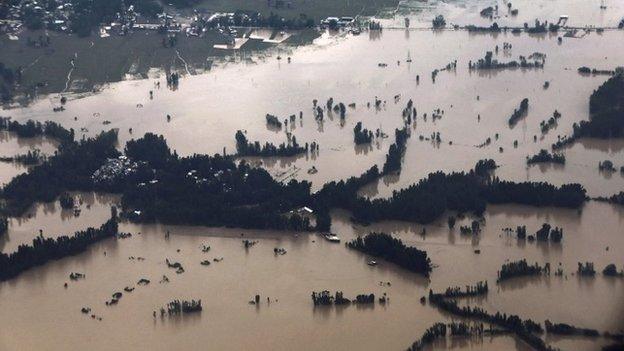
Officials say 400,000 people are stranded in Indian-administered Kashmir
But he dismissed criticism of the government's handling of the flood crisis, saying: "Our entire effort has been focused on ensuring that we have adequate assets to rescue people."
Embankment to be blown
In Pakistan authorities are monitoring the rising levels of the river Chenab, with plans in place to blow the embankment at two strategic places in order to protect the city of Multan.
Multan, one of Pakistan's largest cities, is in Punjab province which has been taking the brunt of the rain and flooding in Pakistan in recent days.
One spot that could be breached is an embankment north of the city which would prevent waters from destroying a crucial bridge and overrunning the eastern part of Multan. This would mean the evacuation of some 8,000 people living along the river.
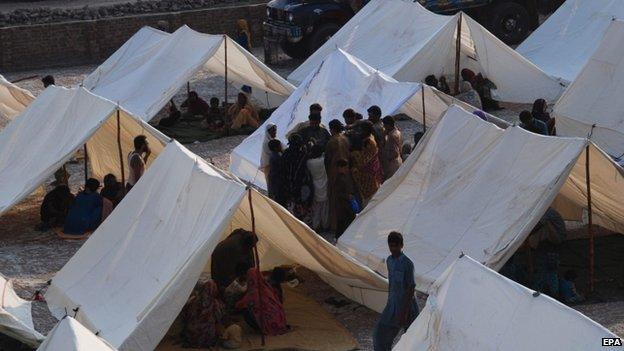
Thousands of people living along the river have been evacuated in Punjab province
The second point is south of the city but the BBC's M Ilyas Khan in Islamabad says these are all difficult decisions for the authorities as the breaches could affect parts of a military cantonment, a major oil refinery, an industrial estate or even parts of Muzaffargarh city, which has been put on high alert.
On Monday the authorities breached another strategic dyke in flood-affected Punjab to ease pressure on flood defences downstream and protect urban areas.
More than 700,000 villagers have been forced to flee their homes. Much of the water is reaching Pakistan from Indian-administered Kashmir, where flood levels are now falling.
Floods caused by monsoon rains are an annual event in South Asia and a series of dams on major rivers are aimed at protecting urban areas in particular from being hit by floods.
- Published11 September 2014
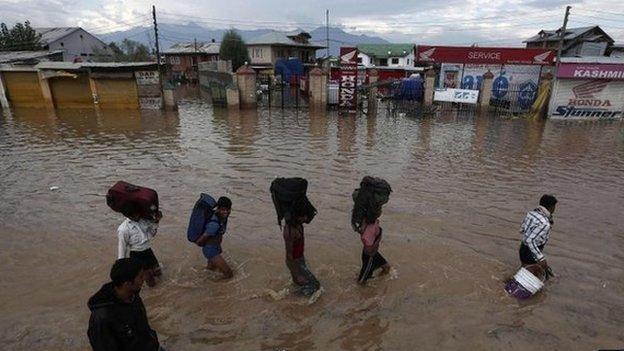
- Published9 September 2014
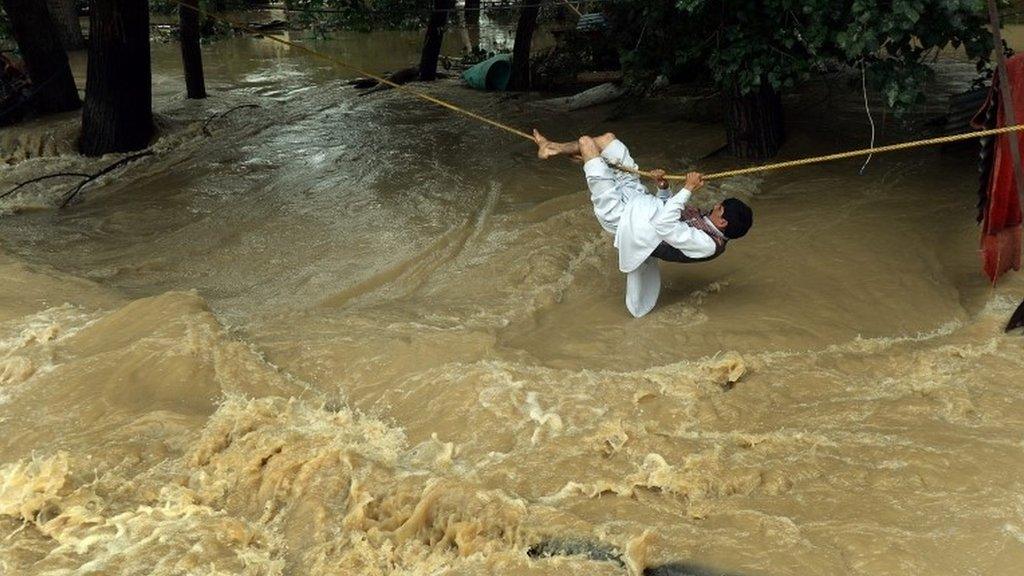
- Published9 September 2014
- Published6 September 2014
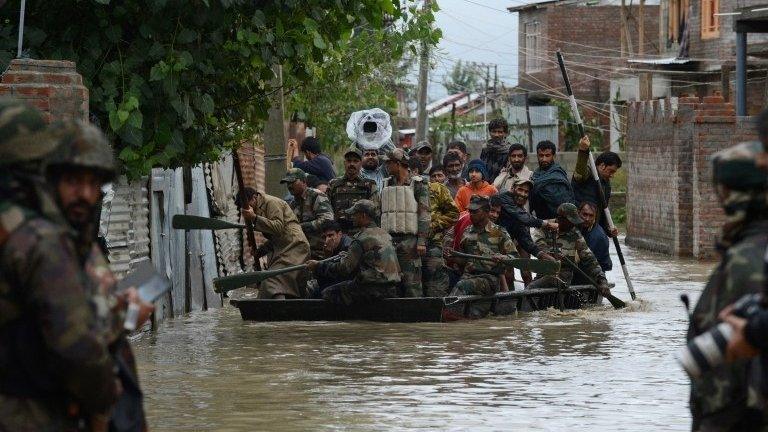
- Published7 September 2014
